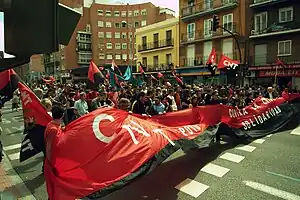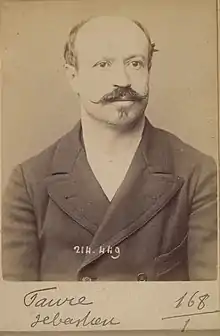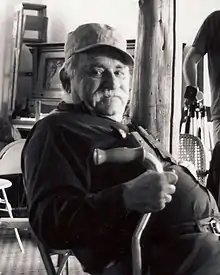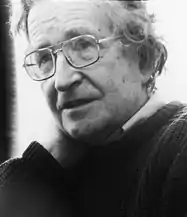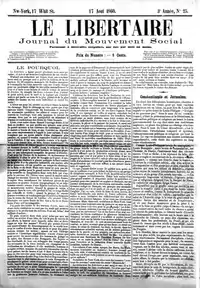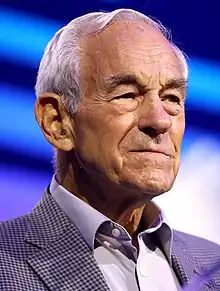Portal:Libertarianism

Introduction
Libertarianism (from French: libertaire, 'libertarian'; from Latin: libertas, 'freedom') is a political philosophy that upholds liberty as a core value. Libertarians seek to maximize autonomy and political freedom, and minimize the state's encroachment on and violations of individual liberties; emphasizing the rule of law, pluralism, cosmopolitanism, cooperation, civil and political rights, bodily autonomy, freedom of association, free trade, freedom of expression, freedom of choice, freedom of movement, individualism, and voluntary association. Libertarians are often skeptical of or opposed to authority, state power, warfare, militarism and nationalism, but some libertarians diverge on the scope of their opposition to existing economic and political systems. Various schools of libertarian thought offer a range of views regarding the legitimate functions of state and private power. Different categorizations have been used to distinguish various forms of Libertarianism. Scholars distinguish libertarian views on the nature of property and capital, usually along left–right or socialist–capitalist lines. Libertarians of various schools were influenced by liberal ideas.
In the mid-19th century,' libertarianism originated as a form of left-wing politics such as anti-authoritarian and anti-state socialists like anarchists, especially social anarchists, but more generally libertarian communists/Marxists and libertarian socialists. These libertarians sought to abolish capitalism and private ownership of the means of production, or else to restrict their purview or effects to usufruct property norms, in favor of common or cooperative ownership and management, viewing private property as a barrier to freedom and liberty. While all libertarians support some level of individual rights, left-libertarians differ by supporting an egalitarian redistribution of natural resources. Left-libertarian ideologies include anarchist schools of thought, alongside many other anti-paternalist and New Left schools of thought centered around economic egalitarianism as well as geolibertarianism, green politics, market-oriented left-libertarianism and the Steiner–Vallentyne school. After the fall of the Soviet Union, libertarian socialism grew in popularity and influence as part of anti-war, anti-capitalist and anti- and alter-globalisation movements. (Full article...)
Selected article
Libertarian communism is a theory of anarchism which advocates the abolition of the state, capitalism, wage labour and private property (while retaining respect for personal property) in favor of common ownership of the means of production, direct democracy and a horizontal network of workers' councils with production and consumption based on the guiding principle: "From each according to his ability, to each according to his need".
Some forms of libertarian communism, such as insurrectionary anarchism, are strongly influenced by egoism and radical individualism, believing libertarian communism is the best social system for the realization of individual freedom. Some libertarian communists view libertarian communism as a way of reconciling the opposition between the individual and society.
Libertarian communism developed out of radical socialist currents after the French Revolution, but it was first formulated as such in the Italian section of the First International. The work of Peter Kropotkin took importance later as it expanded and developed pro-organizationalist and insurrectionary anti-organizationalist sections. To date, the best-known examples of libertarian communist societies were the anarchist territories during the Spanish Revolution and the Free Territory during the Russian Revolution.
Selected quote
| “ | But what the Left That Was demanded was not the symbolic image of the "broken rifle" - so very much in vogue these days in pacifist boutiques - but the training and arming of the people for revolutionary ends, solely in the form of democratic militias. A resolution coauthored by Luxemburg and Lenin (a rare event) and adopted by the Second International in 1906 declared that it "sees in the democratic organization of the army, in the popular militia instead of the standing army, an essential guarantee for the prevention of aggressive wars, and for facilitating the removal of differences between nations.
This was not simply an antiwar resolution, although opposition to the war that was fast approaching was the principal focus of the statement. The arming of the people was a basic tenet of the Left That Was, and pious demands for gun control among today's leftists would have been totally alien to the thinking of the Left That Was. As recently as 1930s, the concept of "the people in arms" remained a basic tenet of independent socialist, no to speak of anarchist, movements throughout the world, including those of the United States, as I myself so well remember. The notion of schooling the masses in reliance on the police and army for public safety, much less turning the other cheek in the face of violence, would have been regarded as heinous. |
” |
| — Murray Bookchin (1921–2006) Social Anarchism or Lifestyle Anarchism (1995) |
Selected picture
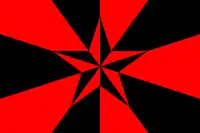 The black rays symbolize the rejection of illegitimate authority and hierarchy while the red rays symbolize socialism (workers' control of production) and democratic governance within workplaces and communities |
General images
Selected biography -
Ronald Ernest Paul (born August 20, 1935) is an American author, activist, physician and retired politician who served as the U.S. representative for Texas's 22nd congressional district from 1976 to 1977 and again from 1979 to 1985, as well as for Texas's 14th congressional district from 1997 to 2013. On three occasions, he sought the presidency of the United States: as the Libertarian Party nominee in 1988 and as a candidate for the Republican Party in 2008 and 2012.
A self-described constitutionalist, Paul is a critic of several of the federal government's policies, especially the existence of the Federal Reserve and tax policy, as well as the military–industrial complex, the war on drugs, and the war on terror. He has also been a vocal critic of mass surveillance policies such as the USA PATRIOT Act and the NSA surveillance programs. In 1976, Paul formed the Foundation for Rational Economics and Education (FREE), and in 1985 was named the first chairman of the conservative PAC Citizens for a Sound Economy, both free-market groups focused on limited government. He has been characterized as the "intellectual godfather" of the Tea Party movement, a fiscally conservative political movement started in 2007 and popularized in 2009 that is largely against most matters of interventionism. (Full article...)Related portals
Parent portals
Socio-political portals
Topics
Categories
Points of interest
| Points of interest related to Libertarianism on Wikipedia: History – Portal – Category – WikiProject – Alerts – Deletions – Assessment |
Associated Wikimedia
The following Wikimedia Foundation sister projects provide more on this subject:
-
 Commons
Commons
Free media repository -
 Wikibooks
Wikibooks
Free textbooks and manuals -
 Wikidata
Wikidata
Free knowledge base -
 Wikinews
Wikinews
Free-content news -
 Wikiquote
Wikiquote
Collection of quotations -
 Wikisource
Wikisource
Free-content library -
 Wikiversity
Wikiversity
Free learning tools -
 Wiktionary
Wiktionary
Dictionary and thesaurus
-
 List of all portalsList of all portals
List of all portalsList of all portals -
 The arts portal
The arts portal -
 Biography portal
Biography portal -
 Current events portal
Current events portal -
 Geography portal
Geography portal -
 History portal
History portal -
 Mathematics portal
Mathematics portal -
 Science portal
Science portal -
 Society portal
Society portal -
 Technology portal
Technology portal -
 Random portalRandom portal
Random portalRandom portal -
 WikiProject PortalsWikiProject Portals
WikiProject PortalsWikiProject Portals
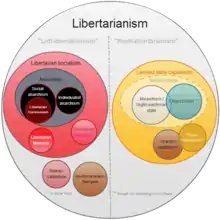
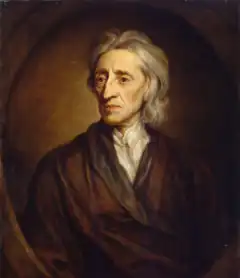
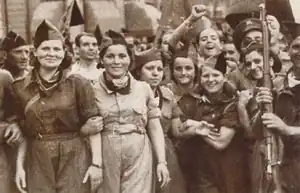


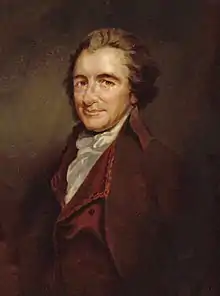

.jpg.webp)
